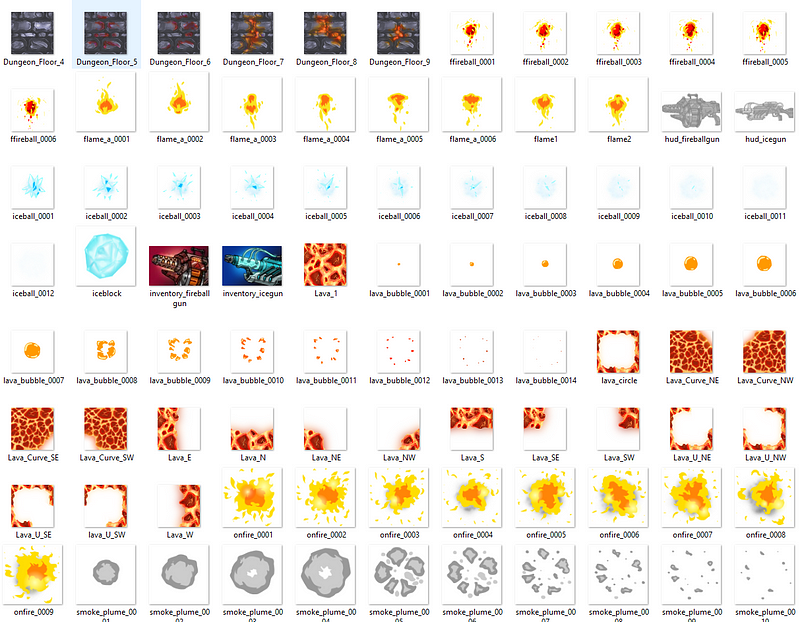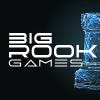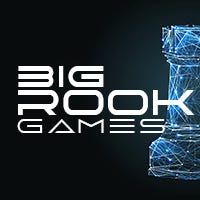Emotion in Game Design, Video Game Storytelling, and Tips To Help Memory | GameDev Weekly Digest 04
This weeks GameDev Digest looks at Emotion in Game Design, Video Game Storytelling, and Tips on how To Help Memory | GameDev Weekly Digest 04

 Emotion in Game Design, Video Game Storytelling, and Tips To Help Memory | GameDev Weekly Digest 04
Emotion in Game Design, Video Game Storytelling, and Tips To Help Memory | GameDev Weekly Digest 04

WEEKLY QUOTE
“To be successful you have to enjoy doing your best while at the same time contributing to something beyond yourself.“
-Mihaly Csikszentmihalyi
Mihaly Csikszentmihalyi is the psychologist responsible for recognizing the concept of ‘flow’, a focused mental state conducive to productivity. I find his quote to be very powerful, as we are pushed further when we feel it’s our duty to do something bigger than ourselves.
Personally, I value education above all else and believe it has the power to unite cultures, cure illness, and advance technology. I want to be able to contribute to the education of our world in a meaningful way sometime in my lifetime.
Is there anything specific you are passionate about? Is it something you could contribute to? It could have a positive effect on productivity and happiness.
WHAT TO WATCH: Skill-Building Series: Emotion in Game Design (A UX Perspective) by Celia Hodent

There is a new video up on the GDC Youtube channel focused on how emotions impact usability and engage-ability in our games. Mostly focused on UX, the video explains how emotion can be used to enhance the appeal of your game.
The concept that stuck with me the most is that “..emotion is here to support motivation.” which is an extremely valuable concept for game developers. Motivation is a key factor in why players continue to play your games past the tutorial intro.
Give this video a watch and take notes!
WEEKLY READ: Video Game Storytelling by Evan Skolnick

Storytelling is a big part of game development. It is often overlooked as a skillset to improve by indie developers. This week I have been reviewing a great book on the subject, appropriately titled Video Game Storytelling. It was written by Evan Skolnick, a veteran in the gaming industry. He has worked on an impressive amount of high caliber games involving titles from Marvel, Disney, and Tell-tale Games.
I also have had the opportunity to work with Evan and he is fantastic at what he does, so I am happy to include his book in this week’s digest.
The book is written specifically for developers and is sort of basic training into the different aspects of storytelling for games and explains how it is different from other forms of storytelling such as films and books.
I learned a lot about storytelling from it and have a solid base-level understanding of the concepts when working with storytellers and writers.
UNITY PLUGINS OF THE WEEK

This is a useful plugin to pull data in Unity from a spreadsheet in your google drive. I’ve used it many times for things such as pulling dialogue from voice acting scripts for on-screen captions to pulling in data for game objects.
If you are like me and use Google sheets to organize some of your data, this can be a valuable and time-saving free Unity asset.
This is the best trail Unity asset I have found. What makes it the best is its simplicity. Add an Ara component to an object and define its material, width, and time visible and it takes care of the rest!
It’s a cheap Unity plugin that adds a lot of value and almost no setup time is needed.
FREE ASSETS OF THE WEEK
![]()
I posted a video back in 2015 with a download for a bunch of 2d sprites. I used these sprites for Undead Empire, a top 10 user rated XBLIG game for a few years back when that was a thing. They may not be cutting edge graphics, but it’s a good collection for anyone starting out that may need a bunch of top-down sprites.

I recorded a video about the pack which goes over what it includes. Or just download them directly with this link.
FINAL THOUGHTS—Tips on remembering information.
Sometimes I obsess over how to become more efficient at the tasks in my day. I don’t think obsessing over something is necessarily bad if it can contribute to progress towards a goal or improvement on a skill. I also try to read a lot but don’t feel like I have a great memory or capacity to retain a lot of the information and have always thought that it was just because that’s the way I am. I wondered if I could become more efficient at reading, so I looked into it.
Sometimes being more efficient means eliminating things that take time. For instance, re-reading a book because most of the content has been forgotten.
I wanted to share something that I have found very beneficial in helping me retain the information that I read. There is a book called A Mind For Numbers that looks like a book on how to get better at math and science, but it is more a book on how to retain information better and more effectively. And not just memorization, but actually understanding the information better. The author Barbara Oakley defines this type of information as a chunk.
A chunk is a piece of information that is memorized AND understood. She explains that knowledge is retained much better when it is “chunked” together. That is to say when the information is understood as well as the relationship to other information that you already know.
Think of it as a jigsaw puzzle. The pieces themselves as separate objects would represent raw information. it would be difficult to remember every single piece by itself. You can memorize the pieces, but it’s not really going to stick because it has no meaning or relationship to other pieces you have seen before. The completed puzzle would be a chunk. It is bits of information formed together to build a bigger picture that is much easier to recall and actually has meaning. You understand what the puzzle is because you can relate to it.
Also when you recall the bigger completed picture, it is easier to remember the pieces that it includes vs raw memorization.
Here are a few tips that have helped me remember things more clearly:
After each page, take a second to consciously think about what you just read. This gets easier over time and the more it becomes a habit.
Then take a second to try and relate it to something else that you already know. If you can’t relate it to anything, think of a metaphor for it.
At night, quickly glance over each page and do the same thing.
And if it’s really important repeat again in the morning.
I know what you’re thinking: how does this make things more efficient? This takes way more time than just reading the book!
Yeah, it does. It takes a lot more time and energy, but you remember things so much better and for so much longer too.
Before doing this, I would revisit books that were important after a year or two. Now I don’t find myself needing to do that. I remember most of the information I read. So if moving forward I retain the information and I had previously lost after 2 years, then after many years, I will have so many more books worth of knowledge sitting in my memory waiting to be recalled. That is where it is more efficient and effective.
It’s also a reminder that we are only limited by our beliefs. I thought I wasn’t good at remembering information when in fact it was that I wasn’t effective at it. I just needed to learn a better way to do it.
I also found another video that was interesting, posted a few weeks ago. The video goes through the design of the crafting system in Astroneer, and the reasoning behind them. It talks about player response about specific details of the design and felt that there were more than a few goods takeaways from watching it.
You can check it out here: Mining Your Own Design: Crafting the Crafting System in Astroneer.
If you found anything from this week’s digest valuable, consider signing up at bigrookgames.com to receive it in your email weekly as well as emails with free development assets.
- Jake Jameson
Read more about:
BlogsAbout the Author(s)
You May Also Like







.jpeg?width=700&auto=webp&quality=80&disable=upscale)








